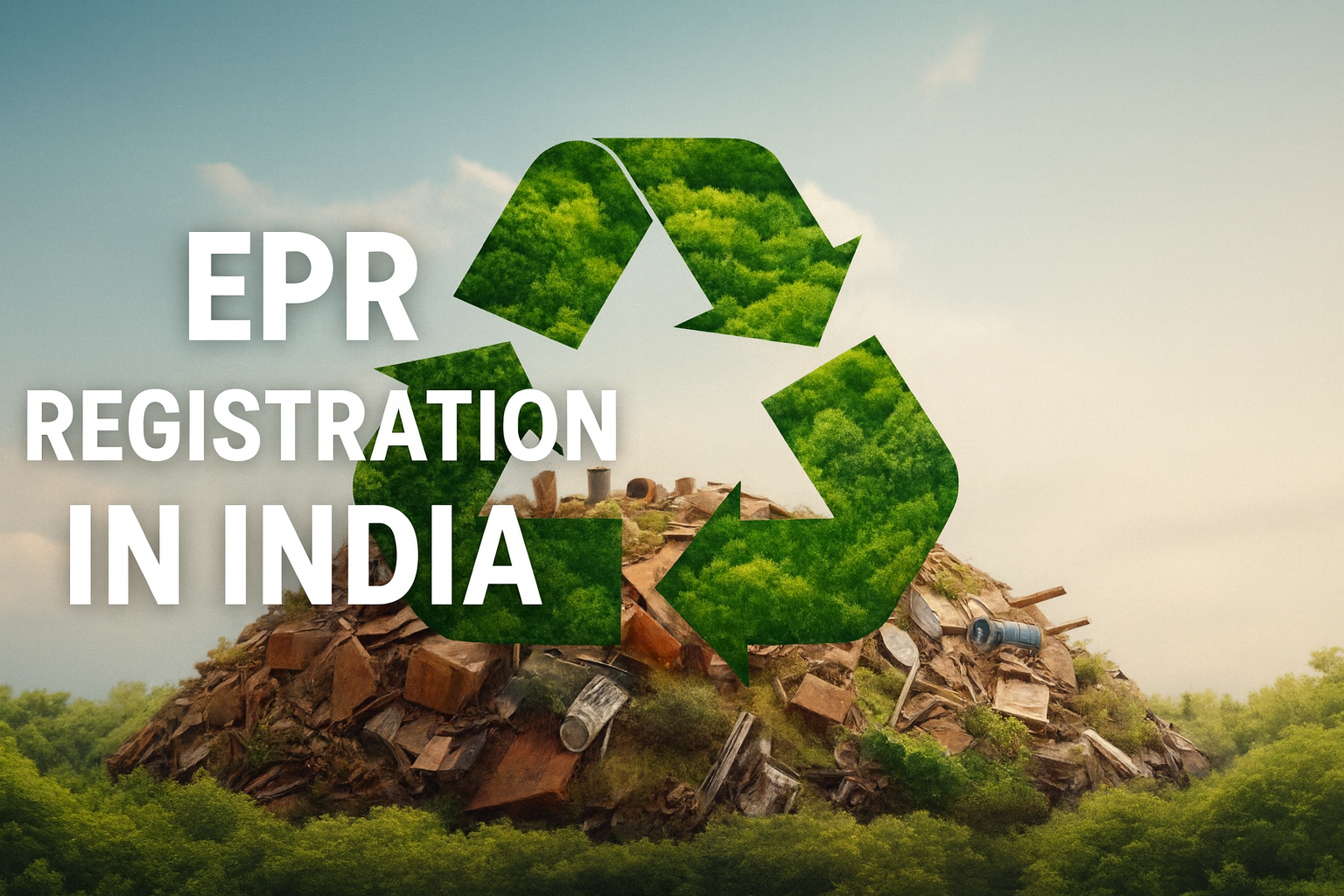Introduction
Environmental sustainability has become one of the most pressing issues in today’s industrial world. To address the challenges of waste management, recycling, and environmental responsibility, the Indian government has introduced a regulatory framework called EPR Registration in India. This system ensures that producers, importers, and brand owners take accountability for the entire lifecycle of their products, particularly their collection and disposal.
This guide will help you understand the process, benefits, requirements, and steps involved in registering for Extended Producer Responsibility (EPR) in 2025.
What is EPR and Why Does It Matter?
Extended Producer Responsibility (EPR) is a policy mechanism that places responsibility for managing product waste on the producers. Instead of relying solely on municipal authorities, companies must now ensure proper recycling and disposal of plastic, e-waste, batteries, and other products after consumer use.
By implementing EPR, India aims to:
- Reduce environmental pollution
- Encourage sustainable product design
- Improve waste collection and recycling systems
- Promote circular economy practices
For businesses, this isn’t just a compliance requirement—it’s also an opportunity to strengthen their brand image by adopting eco-friendly practices.
Who Needs EPR Registration?
Not all businesses require EPR compliance, but specific industries must obtain registration to continue operating legally.
Companies that must register include:
- Plastic producers & brand owners: Companies manufacturing or selling plastic packaging.
- Importers: Businesses importing packaged goods or plastic products into India.
- E-waste producers: Manufacturers and importers of electrical and electronic equipment.
- Battery producers: Companies dealing with batteries (including electric vehicle batteries).
- Tyre manufacturers & importers: Industries producing or importing tyres.
If you fall into one of these categories, registration is mandatory.
Documents Required for Registration
To apply for EPR in 2025, businesses need to submit a set of documents to the Central Pollution Control Board (CPCB). Commonly required documents include:
- Company PAN and incorporation certificate
- GST certificate
- Authorized signatory details
- Product details with quantities
- Recycling or collection plan
- Agreement with registered recyclers, if applicable
Keeping these documents ready will help speed up the process and avoid unnecessary delays.
Step-by-Step Process of EPR Registration
Registering for EPR in India involves several stages. Below is a simplified breakdown of the process:
1. Identify Your Category
Determine whether you are a Producer, Importer, or Brand Owner (PIBO). This helps in applying under the right category.
2. Collect Required Documents
Gather all necessary documents including GST, PAN, incorporation certificate, and product details.
3. Create an Online Account
Visit the CPCB EPR Portal and create your account with valid company details.
4. Submit the Application Form
Fill in details about your business, products, and waste management plan. Attach the required documents.
5. Pay the Registration Fee
Depending on your industry and turnover, a registration fee may apply.
6. Review & Verification
The CPCB reviews your application. If any clarification is needed, you’ll be asked to provide additional details.
7. Grant of Certificate
Once approved, you’ll receive your EPR certificate, which is valid for a specified period (usually 3 years).
Benefits of EPR Registration
While EPR is a compliance necessity, it also offers several advantages to businesses and the environment:
- Legal Compliance: Avoid penalties and ensure smooth business operations.
- Brand Value: Show customers you are eco-conscious, building trust and reputation.
- Global Standards: Align with international sustainability practices.
- Environmental Impact: Contribute to reducing waste and protecting natural resources.
- Operational Efficiency: Encourages businesses to adopt cost-effective waste management solutions.
Common Challenges in EPR Registration
Despite the benefits, companies often face hurdles such as:
- Lack of awareness about regulatory updates
- Difficulty in finding authorized recyclers
- Complexity in submitting compliance reports
- High cost of sustainable packaging materials
To overcome these, many businesses seek help from professional consultants who specialize in EPR compliance and reporting.
Future of EPR in India
By 2025, the Indian government is expected to make EPR even stricter, with higher recycling targets and tighter reporting requirements. Companies that adapt early will gain a competitive advantage, while latecomers may face penalties or loss of market share.
Conclusion
EPR registration is more than just a legal requirement—it’s a step toward a sustainable future. Businesses that embrace this change early will not only comply with regulations but also contribute positively to society and the environment. As we move into 2025, staying informed and proactive is the best way to succeed in this evolving regulatory landscape.
Whether you are a producer, importer, or brand owner, understanding the registration process, preparing your documents, and adopting eco-friendly practices will ensure compliance and long-term growth.
